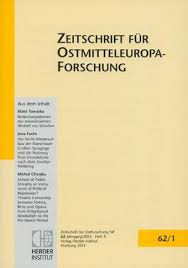Emanzipation – Nation – Konfession. Der Diskurs über weibliche Erwerbsarbeit bei den Deutschbalten (1880er Jahre bis 1910)
Emancipation - nation - denomination. The discourse about female employment among the Baltic Germans (1880s to 1910)
Author(s): Ragna BodenSubject(s): Christian Theology and Religion, Gender Studies, Gender history, Labor relations, 19th Century, Pre-WW I & WW I (1900 -1919)
Published by: Verlag Herder-Institut
Keywords: Emancipation; nation; denomination; discourse; female employment; Baltic Germans; 1880s to 1910;
Summary/Abstract: The employment of women was a thoroughly discussed topic among the Baltic German Community at the turn of the 20th Century because it combined central social issues such as nationalism, religion and women's emancipation. The debate focused on the question of how to bring into line working and family life. This was of vital importance to the Community since their family structures were being particularly challenged by demographic change, the policy of Russification, the transformation of the working conditions during the industrialization and the impulses from the national and the women's movements. These influences spurred discussions about the future of the Baltic German way of life, which was defined in terms of family, religious denomination and social commitment. This debate can mainly be traced in the Baltic German (women's) Journals, but we also find Statements in the diaries of young noblewomen. Most of the predominantly traditional middle-class and aristocratic participants in the discussion made just moderate concessions to modernity. Thus, the bipolar view of the allegedly "natural" roles of men and women within the spheres of family life and society was hardly called into question. It was the conclusions that differed fundamentally. While one traditionalist faction wanted to confine female work to housekeeping in order to secure family life as a nucleus of Baltic German culture, the other, also traditional faction, arguing from the point of view of the Protestant work ethic, advocated the idea of women's employment outside their home, as a contribution to society as a whole. Even if the Baltic Germans by and large reacted to the challenges of the modern age with a traditionalist attitude, it becomes clear that nationalistic and religious arguments were not necessarily anti-modernist, but could and were as well interpreted in an emancipatorial rather than a patriarchal way.
Journal: Zeitschrift für Ostmitteleuropa-Forschung
- Issue Year: 56/2007
- Issue No: 4
- Page Range: 539-565
- Page Count: 27
- Language: German

